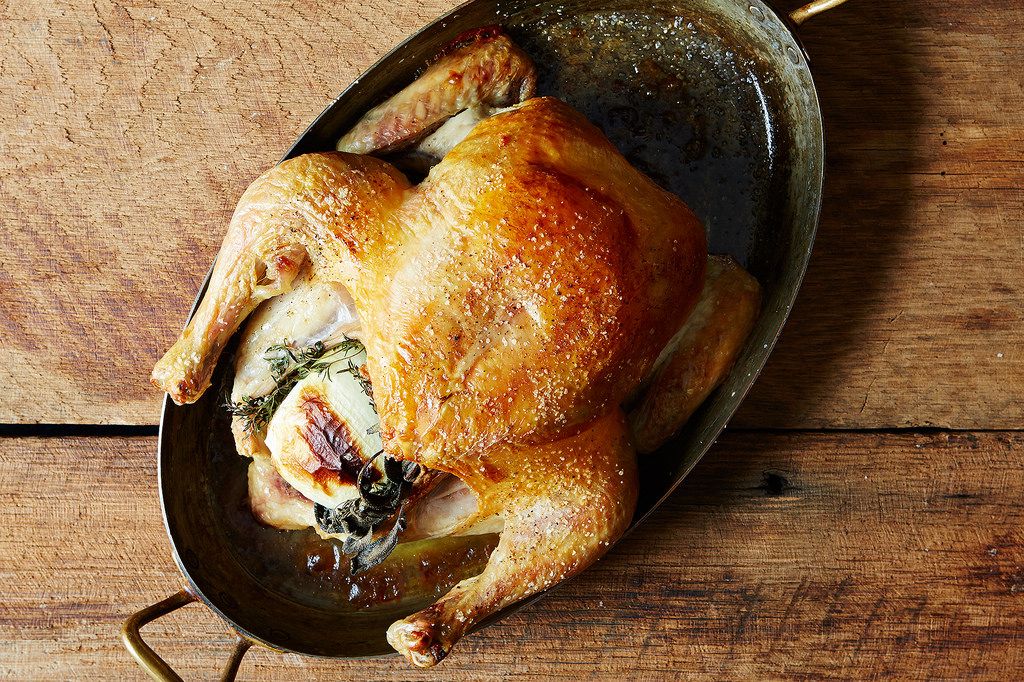
On Black & Highly Flavored, co-hosts Derek Kirk and Tamara Celeste shine a light on the need-to-know movers and shakers of our food & beverage industry.
Listen NowPopular on Food52
Continue After Advertisement
8 Comments
Elissa
November 7, 2015
I disagree with your reasoning about not buying organic milk and bananas. When you buy organic, you are supporting the practice of organic farming which goes far beyond whether or not pesticides have penetrated the skin of the fruit or vegetable. Protecting soil by rotating crops, allowing fields to go fallow for periods of time to rejuvenate; sustainable and humane practices in raising animals and processing meat; and the list goes on and on of course. I suspect you probably already know/realize this, but the way you've introduced your article screams ignorance.
Leslie S.
November 7, 2015
I appreciate your concerns and agree with your reasoning, but unfortunately from an economic standpoint, it's impossible for most, myself included, to buy all organic products, so I need to prioritize the organic products that I purchase and have decided to prioritize animal welfare since I eat meat, though ideally we would all buy everything organic.
Mark X.
November 7, 2015
GsR statements about kosher chicken are also debatable. How are kosher birds drug and cruelty free? Have you visited a kosher harvest facility? Ugh.
I agree that organic chickens are the best to buy. If they're "Certified Organic" and "Certified Humane" you know they meet strict HFAC standards. The website CertifiedHumane.org lists brands that follow responsible farm practices. Regarding harvest, a controlled atmosphere system (CAS) puts the birds to sleep with CO2 before slaughter. This is the most humane way of handling chickens. And any type of water immersion is not akin to "brine"--it's non-potable water that is shared with thousands of other birds. Industry insiders call this a "fecal bath" and it's a great way of sharing pathogens that can harm us. An alternative is 100% air-chilled chickens. Look for USDA processed verified "air-chilled." The flavor of these birds are more intense, they're cleaner, and infinitely more tender. It saves thousands of gallons of water daily--which is more sustainable. No water purge in packaging or while cooking either.
I also suggest looking at a producer's FMI "Safe Quality Food" (SQF) ranking. Level three or higher is equivalent to an "A" in a restaurant window. It's assurance that the facilities are third-party verified as being clean and safe.
I work in the food industry and there are chicken brands I will not touch. And "kosher" chickens are among them.
I agree that organic chickens are the best to buy. If they're "Certified Organic" and "Certified Humane" you know they meet strict HFAC standards. The website CertifiedHumane.org lists brands that follow responsible farm practices. Regarding harvest, a controlled atmosphere system (CAS) puts the birds to sleep with CO2 before slaughter. This is the most humane way of handling chickens. And any type of water immersion is not akin to "brine"--it's non-potable water that is shared with thousands of other birds. Industry insiders call this a "fecal bath" and it's a great way of sharing pathogens that can harm us. An alternative is 100% air-chilled chickens. Look for USDA processed verified "air-chilled." The flavor of these birds are more intense, they're cleaner, and infinitely more tender. It saves thousands of gallons of water daily--which is more sustainable. No water purge in packaging or while cooking either.
I also suggest looking at a producer's FMI "Safe Quality Food" (SQF) ranking. Level three or higher is equivalent to an "A" in a restaurant window. It's assurance that the facilities are third-party verified as being clean and safe.
I work in the food industry and there are chicken brands I will not touch. And "kosher" chickens are among them.
GsR
November 5, 2015
Halle is NOT an option to kosher. Not only is a kosher animal killed as cruelty free as possiable they are also, for all intents and purposes, already brined.
Betsey
November 5, 2015
After reading the book Eating Animals, I could not NOT eat non-humanely-raised poultry. The book is devastating. As I was unwilling to go vegetarian, I committed to only purchasing meat that I KNOW has been raised and slaughtered in a way that respects the animal.
felisalpina
November 5, 2015
We used to have chicken. We also had a farm. Every animal has my highest respect, and this is why I would never buy cheap meat. I cannot imagine that you can raise any animal at such low cost with no side effects.
Sometimes, other people give me grief as they think I am silly for buying organic produce, but honestly: if I buy a chicken, it's a nice one, and it's much more than one meal, so the cost is also distributed across several days. And yes, it tastes better. (So does a lot of organic produce, also milk)
BTW: kosher is not the only option. Halal is another one.
Sometimes, other people give me grief as they think I am silly for buying organic produce, but honestly: if I buy a chicken, it's a nice one, and it's much more than one meal, so the cost is also distributed across several days. And yes, it tastes better. (So does a lot of organic produce, also milk)
BTW: kosher is not the only option. Halal is another one.
GsR
November 4, 2015
So far everyone of your "reasons" are at best debatable. But if you are interested in a drug free cruelty free chicken, try a kosher one. Not only drug and cruelty free, but also killed in the most humane manner possible


See what other Food52 readers are saying.